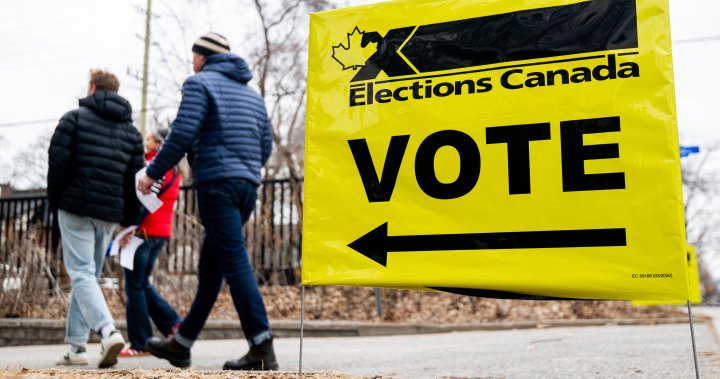Advance poll numbers broke records, Elections Canada said this week, and newly-released numbers give further insight on the days and the provinces where those record-breaking numbers came from.
Preliminary estimates released by the agency on Tuesday showed 7.3 million voters cast their ballot at advance polls during this past weekend, a 25 per cent increase from the 5.8 million votes in the 2021 federal election.
According to data provided on Wednesday, the daily estimated turnout for the 2025 advance polls each surpassed the same period four years ago, with Friday and Monday seeing the biggest number of Canadians at the ballot box.
A record number of voters cast their first votes on Friday, with 2,054,525 ballots cast, a big jump from the 1,401,010 cast on the first day of advance polls in September 2021.
The numbers did dip slightly on Saturday and Easter Sunday, for those who celebrate, with 1,659,952 and 1,466,225 cast, respectively. Even though there was a decline over the holiday weekend, including Sunday, the numbers for each day still were higher than four years ago.
It was Monday, however, that saw the biggest number of voters at the polls.

Get breaking National news
For news impacting Canada and around the world, sign up for breaking news alerts delivered directly to you when they happen.
A total of 2,100,273 were cast, compared to the final day of advance polls in 2021 which saw 1,906,617.
Every province and territory except Yukon saw bigger turnout numbers than 2021, with the most votes coming from Ontario, Quebec and British Columbia.
The estimated turnout in Ontario reached 2,792,881, with Quebec recording 1,595,591 ballots cast and 1,104,151 in B.C.
In fact, Ontario’s numbers also saw the biggest jump compared to four years ago, with 563,539 more votes cast.
B.C. saw the second-highest jump with 291,025 more valid ballots counted.
Yukon was the only jurisdiction which cast fewer votes than the previous election, with 4,748 turning out at the polls compared to 5,318.
Here’s a look at the estimated turnout in each province and territory in this year’s advance polls:
- British Columbia: 1,104,151
- Alberta: 815,131
- Saskatchewan: 206,754
- Manitoba: 229,379
- Ontario: 2,792,881
- Quebec: 1,595,591
- Nova Scotia: 210,030
- New Brunswick: 202,006
- Prince Edward Island: 40,015
- Newfoundland and Labrador: 75,691
- Northwest Territories: 3,631
- Yukon: 4,748
- Nunavut: 967
Early voting at Elections Canada offices has passed, as has the deadline to apply for a mail-in ballot — though Canadians can still drop off their ballot at a local office if voting in their riding or mail it in if outside the electoral district or the country.
But Canadians who did not apply for a mail in ballot, nor vote in any of the early voting methods can still cast their vote on election day on Monday.
If you’re unsure who you can vote for, you can check out who the candidates are in your riding on the Global News website, as well as check out the various promises on key issues made by the parties to ensure you go into election day informed.
Polls will be open on Monday for 12 hours, with the hours varying depending on your time zone.
But Canadians will still be able to vote even after polls close, as long as they are in line at the time of closing and stay in line.
© 2025 Global News, a division of Corus Entertainment Inc.
Read the full article here

